
















Leadership, at its core, is not about titles or
accolades it is about impact, consistency, and character. In this exclusive feature, The Power Player of 2025: Who’s Leading the Future, we spotlight an individualwhosejourneyisatestamenttotheseveryideals. VikasSharmaisanamethathascometoberightlyassociated with innovation, integrity, and value-based leadership. His professional trajectory reflects a rare blend of grounded beginningsandglobalvision—acombinationthatcontinues toshapeindustriesandinspireindividuals.
Bornintoadistinguisheddefencefamily,Vikas’supbringing was rooted in discipline, resilience, and purpose. These weren’t abstract principles in his home—they were lived experiences. Educated at The Army Public School, New Delhi, he developed early on the qualities of adaptability, empathy, and grit.Yet, what setsVikas apart is his ability to forge his own path while honoring his roots. Opting for a career in hospitality, he graduated from the prestigious InstituteofHotelManagement,Bangalorein1993—making a conscious choice to pursue his own passions rather than followtheconventional.
Vikas’s formative professional years were spent at the Taj Mahal Hotel, Mumbai—an institution synonymous with hospitality excellence. There, he not only honed his understandingofluxuryserviceandoperationalprecisionbut also cultivated a deep appreciation for the nuances of customer experience. From The Chambers to the Zodiac Grill,everyroleaddeddepthtohisknowledgeandfinesseto hisleadership.
This feature is more than a profile—it is a reflection on a journeythatcontinuestoevolve,drivenbyacommitmentto excellence, authentic leadership, and transformational impact.AswerecognizeVikasSharmaas The Power Player of 2025, we honor not just what he has achieved, but the values that have guided him—a rare leader for a changing world.

F E A T U R I N G

Vikas Sharma Building Experiences, Shaping Futures, and Transforming Indian Hospitality
16
Leadership in Flux: Navigating Shifting Realities with Condence
18
Emotional Intelligence: The Hidden Power Behind Great Leadership

Art
Business
Business
Digital
Co-designer
Marketing

















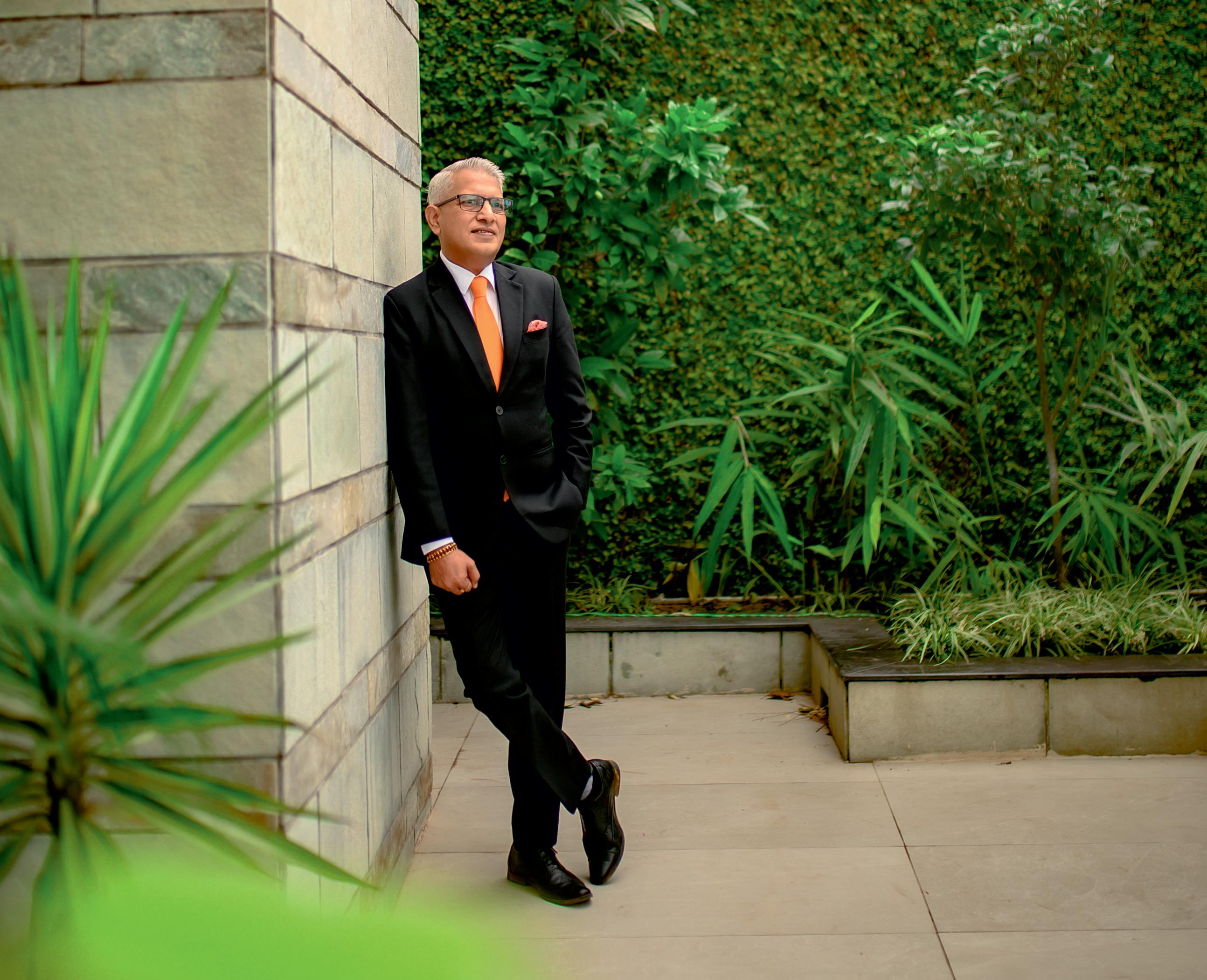

Building Experiences, Shaping Futures, and Transforming Indian Hospitality
Cluster General Manager Asia Resorts Limited
This is an inspiring saga of a hospitality industry veteran whose unwavering commitment to excellence, people, and purpose has redefined industry benchmarks. Vikas Sharma is a name that is most aptly associated with innovation, integrity, and value-based leadership.
Vikas was born into a defence family and was raised in an environment where discipline, dedication, and a sense of responsibilitywerenottheoreticalconceptsbuttenetsoffaith. His early years at The Army Public School, New Delhi, impartedtohimarobustsenseofadaptabilityandcharacter Choosing to follow a path of his own, Vikas graduated in Hospitality Management from the prestigious Institute of HotelManagement,Bangalorein1993.Thiswasincontrast to the conventional route of his family, reflective of his independent character and his capacity to embrace the unfamiliar
His hospitality career began as a Hotel Operations ManagementTraineeattheiconicTajMahalHotel,Mumbai. He worked in some of the most iconic Indian hospitality locations—The Chambers, Zodiac Grill, Golden Dragon, ApolloBar,andBanquetSales.Theseearlyexperienceslaid the foundation for his understanding of service excellence, operationsdiscipline,andthefineartofcreatinglong-lasting guestmemories.
The late 1990s marked a period of transformation in India’s hospitalitysector,andVikaswasattheforefront.Asamember of the pre-opening team for India’s first Radisson Hotel in New Delhi, he played a key role in launching the specialty restaurantI’Chingin1997—apioneeringventurethatsetnew standards for culinary innovation and guest engagement. Being part of Indian Hotels Company Limited (IHCL) also contributedtohisexperience,withleadershiprolesatsenior levels in Taj Mahal Mumbai, Taj President and Taj Exotica, Bentota (Sri Lanka). Having been selected for the elite Taj Management Development Program in IIM Bangalore in 2004wasatestimonytohisleadershipskillsandcommitment tocontinuouslearning.
TheGenesisofaHospitalityVisionary
As Vikas embarked on his career in hospitality, the industry wasnottheconventionalcareerroute,especiallyforsomeone withadefencebackground.Yet,withpassionaheadofplan, heembracedthechallengesandpossibilitiesofthehospitality industry Herecognizedthesimilaritiesbetweendefenceand
hospitality discipline, ruggedness, and pride in service —thatshapedhisleadershipstyle.
ForVikas,thecoremotivationhasalsobeenconstantlyinthe pursuitofcreatingoutstandingexperiencesandleadingwith integrity Thatpassionconvertedaleapoffaithintoacareer spanningalifetimeofpurposeandpride.Whilethemajority of his peers diversified into IT, marketing, or corporate selling, Vikas remained a part of hospitality, enjoying every minuteandembracingitschallengeanddividends.
Hospitality is a challenging profession that demands long working hours and sacrifices, typically at the expense of personal achievements. Vikas appreciates the hardship of missing out on family events but believes in prioritizing quantityoverqualityoftimespentwithfamilymembers.He recallsaseniorcolleagueutteringwordsofwisdom,"I don't know how tall my son has grown, but I know how long he has grown," a phrase that encapsulates the sacrifices endured by professionalsintheservicessector
Despiteallofthesehurdles,Vikashasfaithinmakingevery moment count. Over the years, he has perfected preparing short but meaningful family gatherings over weekends and makingthemostoutofmomentsofquietwiththepeoplehe loveswhentherecanbenonoiseordisturbance.
At his core, he is a service economy warrior always prepared to return to the front lines when called back. That preparedness and mindset allows him to lead purposefully, while establishing the most important relationships. It's not easy, but it can be achieved with discipline, empathy, and a deep regard for the job done both in the workplace and at home.
AppetiteforBusiness:NurturingGrowthwithVision
Vikas's business appetite is driven by a passion for growth, innovation, and creating better guest experiences that drive financial results. He thrives in high-energy environments, identifying and seeking out new opportunities—whether venturingintonewmarketspaces,drivingmaximumrevenue streams, or developing strategic partnerships that drive the hotel'sbrandandbottomline.
He is a results-oriented, data-intuitive business developer constantly monitoring market trends, competitor performance, and guest behavior to make every property competitive.Vikashasaninterestindrivingtop-linegrowth
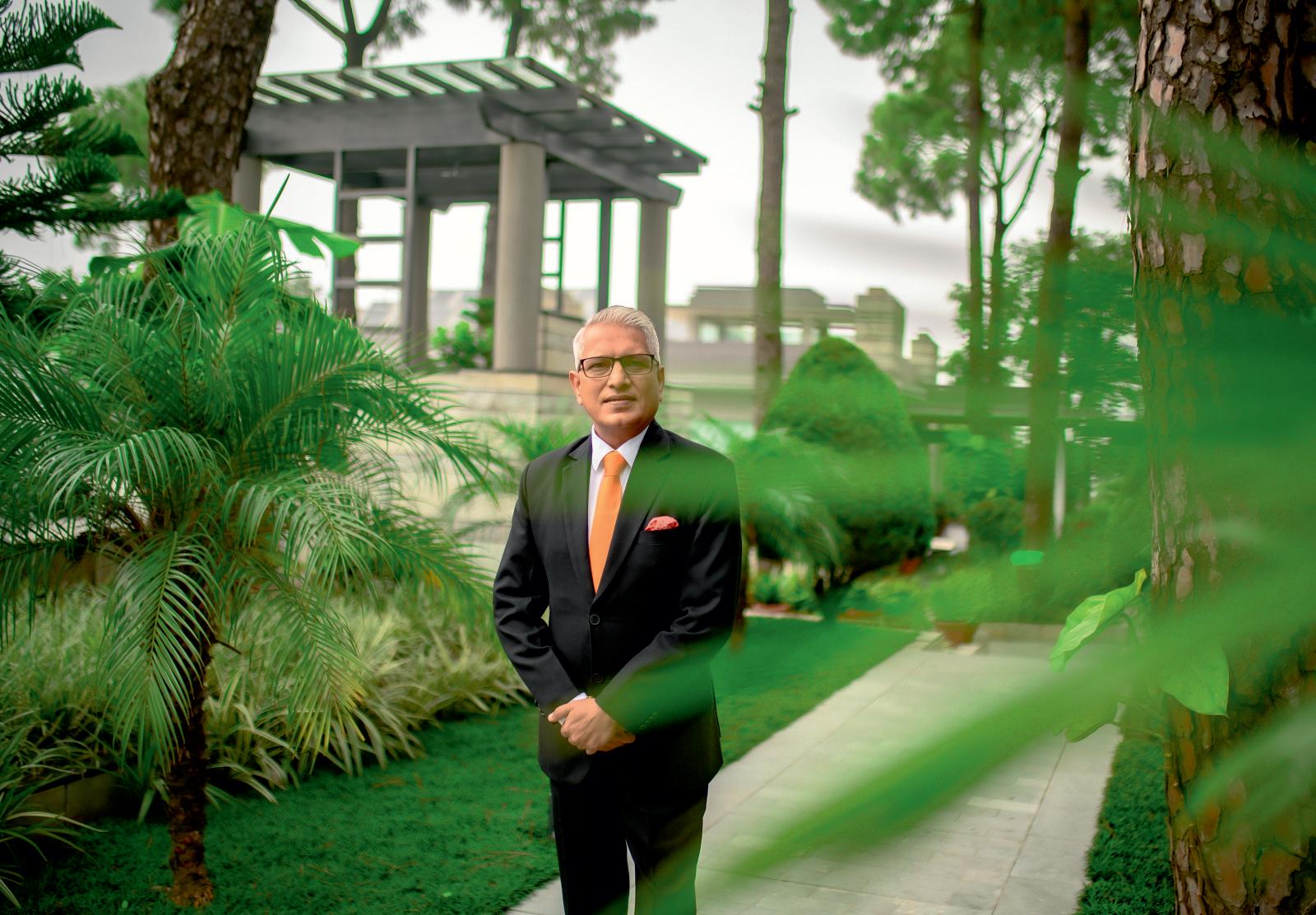
across all revenue-generating departments—rooms, F&B, events, and spa—and cohesively steering them with one commercialstrategythatdeliversshort-termgoalsaswellas long-termsustainability
ThePassionThatFuelsExcellence
What drives Vikas is an unwavering dedication to service excellence and a belief that people the guests and associates—arethecornerstoneofanysuccessfulhospitality business. He states, “Offering great service isn't a standard; it's an attitude.” He is passionate about creating memorable guest experiences that are individualized, dependable, and emotionally connected. That sort of service is built on a cultureofexcellence,responsibility,andprideinallaspects.
“I believe that offering great service isn’t a standard; it’s an attitude.”
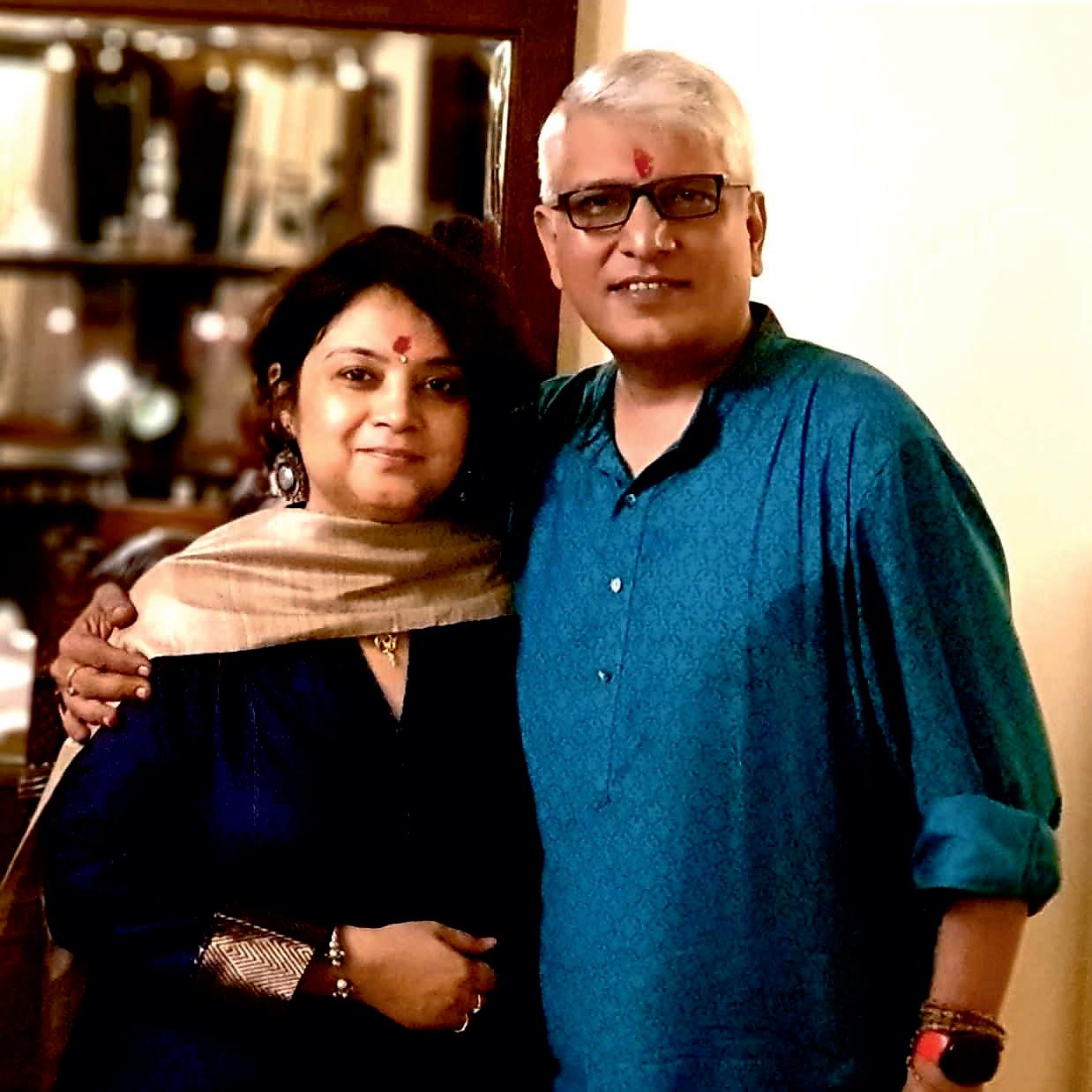
“Every challenge in hospitality has taught me to lead with purpose and humility.”
Likewise,Vikasishighlymotivatedbycapability—findingit, building it, and growing it. Maybe the most personally fulfilling aspect of his work is discovering others' potential andtransformingthemintofutureleaders.
Through coaching, explicit development plans, or simply listening and counseling, he takes pride personally in seeing individuals succeed and deliver more than they thought possiblethemselves.Heisabelieveringrowingfromwithin and empowering individuals to become their own career owners.
His greatest motivation is the "fire in the belly" to keep learning Vikas perceives each situation be it a guest complaint, an internal team conflict, or a shift in the marketplace—as an opportunity to grow. He makes sure to learnfromwinsaswellaslossesandremindshisteamtodo thesame.Thehospitalityindustryisconstantlyevolving,and staying curious, humble, and open has played an important part in his growth and the success of the hotels he has overseen.
ResilienceinTimesofCrisis:NavigatingTheCOVID-19 Pandemic
COVID-19 devastated the hospitality industry globally in a waybothdeepandhistoric.Duringthefirstwave,Vikaswasa part of the leadership group at Hard Rock Hotel Goa, where thehighestprioritywasenforcingstrictCOVID-19protocols according to international brand standards. Guests and staff safety took precedence, and he worked closely with ownership of the hotel to safeguard livelihoods of the most prized asset—manpower. Even though financial pressures had presented challenging decisions about salary consolidation and curtailed operations, the aim was to keep the critical team and morale intact Transparency, communication, and empathy emerged as leadership's most importanttools.
In early 2021, immediately before the second wave, Vikas wasappointedthepre-openingGeneralManagerofRadisson Blu Resort Dharamshala. It was a very challenging period overseeing a pre-opening during a recurred pandemic. The staff made the smart move of incorporating hygiene, social distancing, and safety protocols into every operational SOP and marketed these as "Radisson Safety Protocols" to gain guests' and staff's trust. The ultimate success of opening the resort during such hard times was a testamenttotheirresiliencetoadaptandrecover.
In the rearview mirror, the pandemic was a learning, innovation, and closer team bonding catalyst. It challenged

everyaspectofleadership,butallowedVikasandhisteamsto emergestronger,witharenewedfocusonagility,safety,and humantouch.
Strengths and Learning Grounds: The DNA of Leadership
One of the strengths that contributed to Vikas's success as a GeneralManagerandindustryleaderishisstronganalytical capabilities. In a high-speed, high-detail business, staying rooted in facts and figures encourages decision-making. Ratherthanmakingdecisionsonthespurofthemoment,he steps back, analyzes situations objectively, and develops solutionsthatarestrategicanddurable.Thishasenabledhim to solve complex crisis situations, navigate complex stakeholder relationships, and lead organizations with confidenceandclarity.
Vikas believes that independent thinking is of utmost importance Alignment with senior management and collaborationareessential,buthedoesnotbelieveinbeinga 'yes man.' Leadership for him is about expressing opinions respectfully, especially if backed by reason, operational commonsense,andfactualdata.

Ownersandexecutiveboardshavethuscometotrusthim,and his teams have been empowered to think independently and actresponsibly.
He concedes that something he still learns every day is his tendency to call a spade a spade. Honesty and bluntness are essential,buthehaslearnedthatmannerandtimingarealso essential. There have been occasions when his frankness, well-intentioned as it has been, needed more tact He considers this a failing, but one in progress—a field where emotional intelligence has to make up for professional candour.
Lastly, Vikas operates with an aim to be a part of the organization's success in the long term. He is convinced of cultivatingacultureofaccountability,decision-makingbased on information, and respect for one another—a mindset that helpsgoalsgetachievedandinducesenduringimpact.
Vikas's hospitality career has been rewarding and enriching, with the propensity for excellence, strategic thinking, and people-oriented style of leadership He considers each milestone a testament to team achievement and relentless pursuitofoperationalandserviceexcellence.
Recently, Vikas has been featured in "Trending 2025" and "Sol Luxury Magazine – Prestige Profiles 2025,"distinctions that reaffirm the impact of consistent performance and leadership. He has been responsible for the successful preopeningandoperationofmanyofthemosticonicproperties in his career to date, with a track record of consistently delivering excellent financial results, guest satisfaction scores,andemployeeengagementmetrics.Hisleadershiphas beenacclaimednotonlybyindustrycolleaguesbutalsobythe countlesspeoplewhosecareershehasshapedandinspired.
In 2009, Vikas received wonderful recognition owing to his dedicated endeavors. He was among the Top 5 General Manager’s in India in contention for the "Hotelier India" Annual Hospitality Awards He guided The Chancery Pavilion to claim the "National Award for Best Marketing Strategy".Healsoreceivedthe"BestManagement–Training and Development Award" at the 5th Hospitality India & Explore theWorldAnnualAwards. In the same year, he was awarded "Best Professional in Hospitality" by Safari India and in 2010 as "Best General Manager" for outstanding leadership at aloft, Whitefield Bangalore. Furthermore, he wasrecognizedandawardedamongstthe Top 12 Hoteliers in IndiabySafariIndia.
Hisstrictadherencetoexcellencewasonceagainrecognized withthe"India'sBest"TopChoiceLeadershipAwardin2018 given by Trinity World Biz and with the "Goa's Best Senior Officer"AwardbytheMinisterofState,MinistryofDefence & AAYUSH at the "Best of India" Biz Awards in 2019. Convinced,asheis,aboutcreativityandinnovation,Vikasis thrilled to have thought out and launched S.H.A.C.K., a trendy alfresco resto-bar at the Taj Exotica Hotel, Bentota, which has become a number one experiential dining destination.Forhim,itisgreaterthanbringingmedalshome. It is rather the lasting testament of culture, capability, and reliability that he leaves behind each medal as a soft remindertobehumble,toleadwithintegrity,andtosetthebar higheralways.
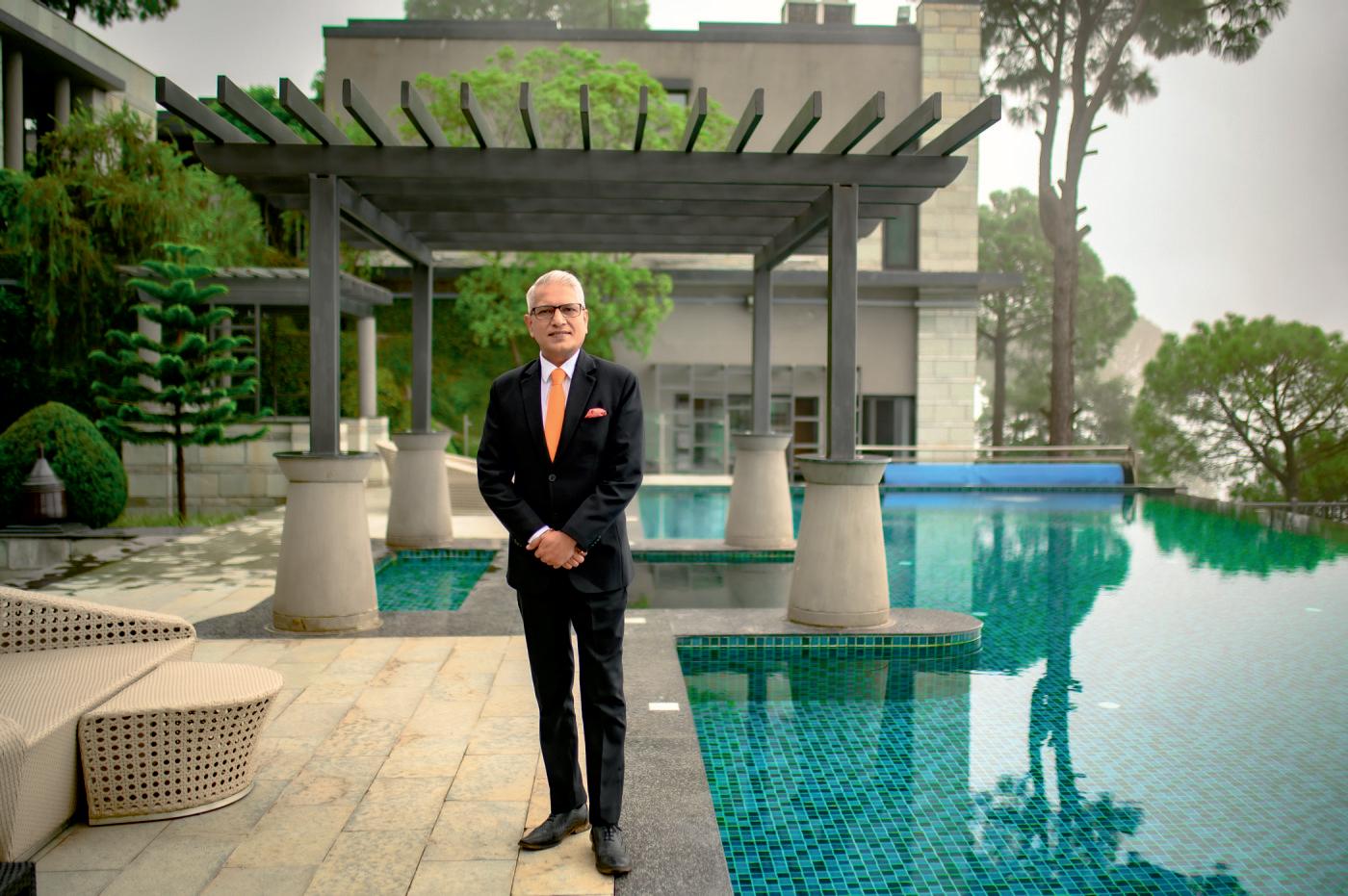
TheRoadAhead:VisionfortheFuture
AsVikasleadsMokshaHimalayaSpaResortandTimber Trail Terrace & Heights into their next chapter culminating in the much-anticipated rebranding as a Grand Hyatt by 2028 he remains steadfast in his commitment to excellence, innovation, and people development. His vision is to create a hospitality ecosystem that sets new benchmarks for guest experience, operational excellence,andtalentempowerment.
He believes that the future of hospitality is about adopting change, nurturing a culture of continuous learning, and harnessing technology to improve guests and employees. Vikas is committed to growing the future leaders, with integrity, compassion, and service excellence remaining the guidingprinciplesfortheindustryinmanydecadestocome.
PersonalReflections:TheManBeyondtheManager
Beyond career achievement, Vikas is a devoted husband, father, and mentor. His story is a testament to the power of
resilience,therequirementtostayfirminone'sprinciples,and the transformative impact of authentic leadership on individuals and organizations. Whether slicing through the fluctuationsofthehospitalityindustryorspendingquiettime with loved ones, Vikas infuses every aspect of life with purpose,pride,andanunstoppablecommitmenttomakinga difference.
While advising the emerging professionals of tomorrow, Vikassays: remember, all that glitters is not gold. Success in hospitality—or any field—requires patience, perseverance, and passion.HismantrahasalwaysbeenLeadwithpurpose, think with clarity, act with integrity. He advises the young professionals, “Stay curious, stay committed, and focus on creating value every single day Growth comes when you embrace challenges, lead with empathy, and never stop learning. Keep moving forward—your journey itself will be yourgreatestachievement”.

Leadershiptodaynolongerfollowssetrulesordefinite timelines. The world is changing—formed by rapid technologies, shifting geopolitics, climate emergency, cultural shift, and economic upheaval. What works today might not work tomorrow. In that reality, the greatest leaders aren't the ones holding on to certainty—they're the ones best able to navigate uncertainty withclarity,agility,andcomposure.
"Leadership in transition" isn't about responding quicker to change.It'saboutbecomingadeptattheinternalstabilityand external flexibility necessary to lead organizations through unfamiliar landscapes. It requires a new mindset—one that substitutesfixedplanningwithadaptiveresponsiveness,and fixedauthoritywithgenuine,participativepresence.
TheConfidencetoEmbracetheUnknown
Classic leadership usually valued control: having the answers, anticipating results, avoiding surprises. But in today's changing environment, the illusion of control can be more treacherous than uncertainty itself. The leaders who succeed are those who dare not pretend to know what they don't—andarecourageousenoughtoleadanyway
Confidence in flux is not achieved by always knowing the answers.Itisachievedthroughasolidbaseofself-awareness, strategicintent,andemotionalintelligence.Theseleadersare confidentintheirpurposeandprinciples,evenwhentheroad ahead is unclear They create confidence not through perfection, but transparency, steadiness, and decisive humility
Suchself-assuranceisinfectious.Whenaleaderdemonstrates poised uncertainty—managing change with openness and determination—theyencourageotherstodothesame.
FromPlanningtoPivoting
Leadership in an unchanging world depends on long-term planningandfixedroadmaps.Butinaworldofflux,adaptive thinkingisthekeyleadershipcompetence.Itinvolvesmoving from linear plans to scenario-based thinking. From fixed yearlystrategiestoresponsive,rollingdecisionprotocols.
Leaders in transition are always asking: What's changed? Whatarewelearning?Howdowepivotwhileremainingtrue toourmission?

This is not a dismissal of strategy—it's a redefinition of strategy as a process in living, not in written form. The greatest leaders develop adaptive systems that enable their organizations to test, learn, iterate, and expand—without sacrificingtheirsenseofpurpose.
It'stemptingtoconfusechangewithcomplexity.Changeisa happening. Complexity is a state.And the challenges of the day whether charting hybrid workforces, digital transformation,globalcrises,orculturalshifts—arecomplex bynature.
Leaders in transition need to be sense-makers.They soak in ambiguity, recognize emerging patterns, and convert noise into meaningful action. They understand that complexity seldomyieldsobviousrightanswers.Rather,itrequiressubtle decision-making, ethical judgment, and profound listening acrossdisparateviews.
Most importantly, such leaders fight the temptation to oversimplify They know that trust in complexity does not originate from simplifying it, but through approaching it carefullyandopenly.
Uncertainty brings not only cognitive challenges but emotional ones Stress, fear, confusion, and fatigue are common reactions—for both leaders and their teams.That’s why the capacity for emotional agility—the ability to stay open, self-aware, and values-aligned even amid inner and outerturmoil—isessential.
Resilient leaders recognize discomfort but never allow it to sidetrack them They open space for emotion without becoming lost in it. They establish vulnerability as a model without becoming directionless. And they offer their teams empathyandstructure—bothofwhichreinforcetrust,safety, andhighperformanceeveninthefaceofdisruption.
These leaders don't merely rebound from disruption—they grow and change as a result of it, coming out even stronger andmorestable.
Whentimesareuncertain,individualsseeknotonlydirection fromleadershipbutalsomeaning.Whenclarityisabsent,fear andrumorrunrampant.
That's why leaders in transition need to over-index on transparent,consistent,andempatheticcommunication.
That means communicating what is known and not known, callingoutthecomplexity,andreiteratingsharedpurpose.It also requires listening actively—building true conversation insteadofone-waydeclarations.
Credibilityis establishednot by knowing everything,but by beingauthentic,human,andthere.Inafast-changingworld, individuals don't anticipate perfection they anticipate leaderstobegenuine,predictable,anddedicated.
Organizationalculturedeterminesthewaythatteamsreactto change. Leaders in transition realize that culture is a compass—definingbehavior,decision-making,andstrength. They invest in cultures that value learning over blame, curiosityovercertainty,andcollaborationovercontrol.
Theyinviteexperimentation,valueadaptability,andpermitit tobeokaytoquestionassumptionsorprobeforanswers.By sodoing,theycreateorganizationsthataren'tmerelyreadyfor disruption—but actually able to leverage it as a driver of innovation.
Conclusion:AnchoredinPurpose,EquippedforChange
Leadershipintransitionisnotafad—itisthenewnorm.The world will keep changing more quickly than inflexible systems or locked-in attitudes can cope with. But that's not somethingtobescaredof.It'saninvitationtoleaddifferently.
The leaders who will shape the future are those who will be rooted in purpose, yet flexible in methodology They know that authentic confidence does not derive from certainty, but fromclearvalues,goodcharacter,andcouragetostepforward whenthepathaheadisnotwelldefined.
When faced with change, they do not hold on to the past they co-create the future. They lead with agility, authenticity, and vision—creating not only strategies for today,butfuturesworthbelievingin.

In today's fast-paced,complex,and more human-centric business world, old standards of leadership intelligence, expertise, and authority no longer suffice. Technical competence and strategic ability are still essential,butitisthelesstangibleyetmoresignificantEQthat distinguishestrulysuperiorleaders.
Described as the capacity to comprehend, recognize, and regulateone'sownemotionsaswellasnegotiatetheemotions of others, emotional intelligence has become a pillar of successful leadership Indeed, most of the skills that characterize transformational leaders—resilience, empathy, flexibility, and trust-building—are based not on intellectual ability,butonemotionalcapability.
Emotionalintelligenceisnotanindividualcharacteristicbuta constellation of interconnected skills. Psychologist Daniel
Goleman, an authority in this area, identifies four foundational elements: self-awareness, self-management, social awareness, and relationship management When combined, these create a strong foundation for effective leadership.
Self-awarenessisthefoundation.Leaderswhoareattunedto theirownemotions,values,andtriggersarebetterabletolead with clarity and authenticity They understand how their mood influences others, acknowledge their blind spots, and adjust accordingly Honesty with oneself builds credibility withothers.
Self-management is that foundation. It is the skill of managing impulses, remaining composed in pressure situations,andrespondinginsteadofreacting.Particularlyin high-stakes situations, this emotional self-control enables leaderstoremainfocused,robust,andforward-thinkingeven inthefaceofuncertainty

Social awareness, commonly called empathy in action, enables leaders to know and adapt to the emotional currentsoftheirteams.It'smorethan being "nice" it's seeing what engages individuals, being sensitive to subtle dynamics, and appreciating differentperspectives.Itisoneofthe primary drivers for inclusivity and teamsynergy.
Relationship management is where emotional intelligence turns really transformational It's about motivatingothers,managingconflict, establishing trust, and growing others. Leaders who excel in this domain are usually referred to as "magnetic" or "real" not due to charisma,butduetobeingabletoget others to feel noticed, cared for, and confident.
Contemporary leadership is about much more than leading work or producing outcomes It's about leading individuals through complexity, uncertainty, and accelerated change. In this environment,thewaythataleadermakesothersfeelcanhave a significant impact—on employee motivation and team performance,oninnovationandonretention.
In hybrid environments, emotionally intelligent leaders are skilledatestablishingpresenceandtrustthroughscreensand across time zones. During crisis, they offer calm and open communicationthatmitigatesfearandinstillsconfidence.In growth stages, they generate purpose, align disparate personalities,andcreateculturesinwhicheveryonesucceeds.
Several studies substantiate the worth of EQ in leadership. Teams managed by emotionally intelligent leaders have greater morale, stronger teamwork, and improved performance results. Additionally, companies that focus on emotional intelligence from the top tend to experience increasedcustomersatisfaction,brandloyalty,andemployee welfare.
Oneofthemosthopefulthingsaboutemotionalintelligenceis thatitisnotanimmutabletrait.Incontrasttothefairlyfixed nature of IQ, emotional intelligence can be developed and grownwithconsciouseffort,feedback,andreflection.
More executive development programs are acknowledging this. Coaching, 360-degree feedback, and experiential learning are now central components of executive education—not to instruct leaders what to think, but to help them tune in, respond well, and develop more profound relationships.
EQisnotamatterofbeingexpressiveorconflict-averse.It's strategic self-regulation, empathic without enabling, and influencing without manipulating. In these ways, emotional intelligencebecomesnotonlyapersonalstrengthbutadriver oforganizationalhealth.
Without doubt, the most underappreciated but revolutionary component of emotional intelligence is empathy.Inmoreinclusion-aware,equity-conscious,mental health-focused cultures, leaders who possess genuine empathy are much better able to foster cultures of psychologicalsafety
Empathy generates trust—and trust speeds up everything. It leads to open honest conversations, ignites innovation by enablingindividualstobebold,andfostersdeeperloyaltyin times of challenge. Particularly in international or crosscultural settings, emotional intelligence allows leaders to navigatedifferenceswithcuriosity,sensitivity,andopenness.
This is the secret leverage of emotionally intelligent leadership:itredefinespowerfromsomethingthatcommands to something that frees. It builds organizations where individualsdon'tmerelywork—theyflourish.
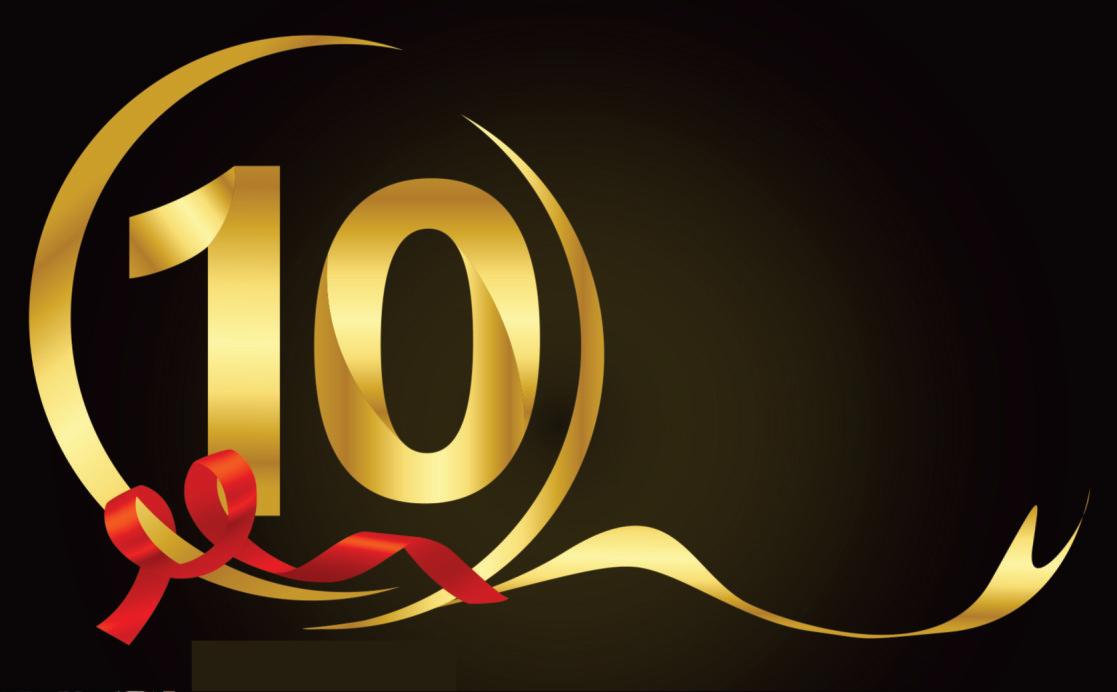
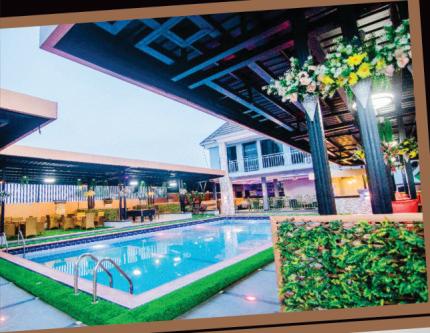
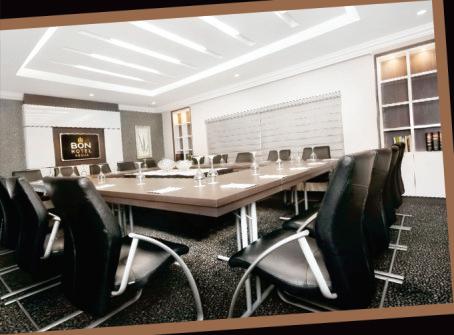
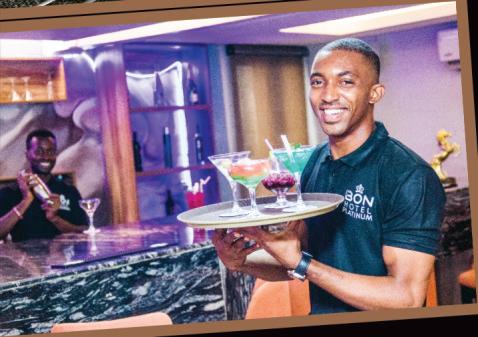











For Subscrip�on: www.insightssuccessmagazine.com
www.x.com/insightssuccess

